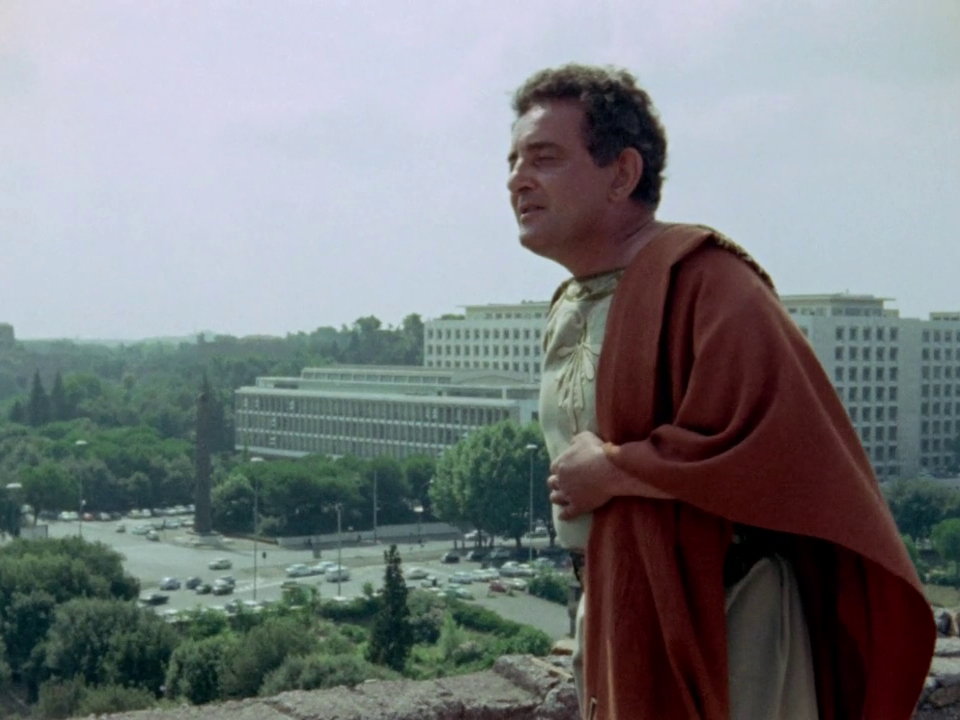
Othon was Straub-Huillet’s first film in colour, and their first in a number of films set in the ancient world. Like much of their work, it is based on a lesser-known text by a canonical author: Pierre Corneille’s 17th century tragedy Othon, a play inspired by an episode of Roman history from 69 A.D. It tells the story of an ambitious Roman nobleman who negotiates his search for power through both love and political scheming.
EN
“Not so much vicarious power as the vicariousness of power. Substitute, replacement, delegate, stand-in. Power at once theological (vicar), political (representative, deputy, henchman), linguistic (deferral, différance), theatrical (role, performer). The coup d'état as logic of substitution: "The second Bonaparte is himself only a replacement, a substitute for Napoleon." A process of succession: Nero, Galba, Otho, Vitellius. The delivery of the script partly having the character of a rehearsal, a runthrough, but without looseness or relaxation. Instead, a text of certain dimensions has been passed through a very thin conduit (the zoom into the cave entrance at the beginning), becoming pressurized and volatile. "Power [...] produces the text instead of suppressing it." The decorative and ornamental "Roman costumes" and "Roman phrases" are fractured from within, prosaic. Something constantly performed through the film: "a coup d'état in miniature every day" (every second). Not to forget the centrality of Plautine and Camille (who understand the role they have been assigned as mediators of male power) and marriage (itself theatrical and instituted by an utterance that is performative). The substitutive logic of patriarchy: marry the daughter and hopefully take the place of the father. The film's own logic being to refuse this vicariousness while presenting it. It represents nothing ("cinema is incapable of expressing anything at all"; "we should make films without meaning, I hope that film means nothing"). Yet its substitution is not limited to the internal movements of écriture. The "backdrop" of the cars and the noise of traffic, the Rome that might permit herself at some point in the future to choose, the places cited (Hispania, Lusitania, Graecia) - all these are signs of the dictatorships surrounding the film and the country of its filming. These, "set back into a defunct epoch", with their equivalents of "resurrected Romanism - the Brutuses, the Gracchi", attempting to sustain "their passion on the high plane of historical tragedy". The film is derisive and deadly serious. In short: impossible to grasp Othon without reference to Franco, Estado Novo, the Colonels.”
Nicolas Helm-Grovas1

